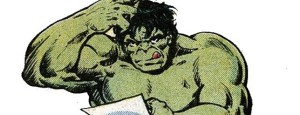Step One
 I had been writing fantasy and science fiction for years before it finally dawned on me that if I was really serious about it I really ought to understand its roots. This was some time in my late 20s, right before the birth of my first child. For many years I threw myself into an exploration of great or influential (occasionally both) and frequently obscure fantasy fiction from the mothers and fathers of fantasy. I dove deep, and by the time I came up for air I had learned an awful lot. I do recommend understanding the ground on which we stand so that writers can better understand how to move forward.
I had been writing fantasy and science fiction for years before it finally dawned on me that if I was really serious about it I really ought to understand its roots. This was some time in my late 20s, right before the birth of my first child. For many years I threw myself into an exploration of great or influential (occasionally both) and frequently obscure fantasy fiction from the mothers and fathers of fantasy. I dove deep, and by the time I came up for air I had learned an awful lot. I do recommend understanding the ground on which we stand so that writers can better understand how to move forward.
However, I recently realized that while I was reading all that old stuff– some of which was cool, a little of which I loved so much I moved it to my favorites list, and a lot of which was turgid or simply not my cuppa — I was NOT reading a whole generation of literature that had a tremendous influence on a lot of my peers writing today. For instance, I missed out on the whole Robert Jordan thing. By the time I was through with my scholarly investigations, word was out that Jordan had begun to stretch those middle volumes, so I never dipped in.It might be that I would have gotten hooked enough that I’d be frantically reading the Sanderson/Jordan volumes like many of the rest of you.
Me, I still like books that feel like a movie in length. However, I don’t think that’s what the fantasy book buying public wants these days. They want a book that feels like a miniseries. You have only to look at the bestselling adult fantasy series to see this. Almost all of them are weighty tomes. Now that I’m looking at the evidence it’s incredibly obvious. It was made even more obvious to me at Worldcon 2012, when I was manning the Black Gate booth. A woman dropped by to look at the thick, gorgeous editions of the magazine, each featuring a colorful and striking cover.
“What’s this?” She asked, obviously attracted by the heft and professional look of the mag. When I told her that it was a collection of short stories she immediately sat it down. “I only like big fantasy novels that I can really lose myself in,” she said, then thanked me and walked off. It wasn’t the first time I’d heard something like that, but it was the first time it really stuck with me.
If I am to make a career of this whole thing, I need to find a way to provide what the audience wants while at the same time pleasing my own storytelling muse (if I’m not enjoying what I’m writing, I have a hard time believing it can be any good). Step one has been reading a lot of the most popular fantasy series so I can see how true masters of their craft can spin long yarns. I’ve been taking a lot of notes…
17 Comments